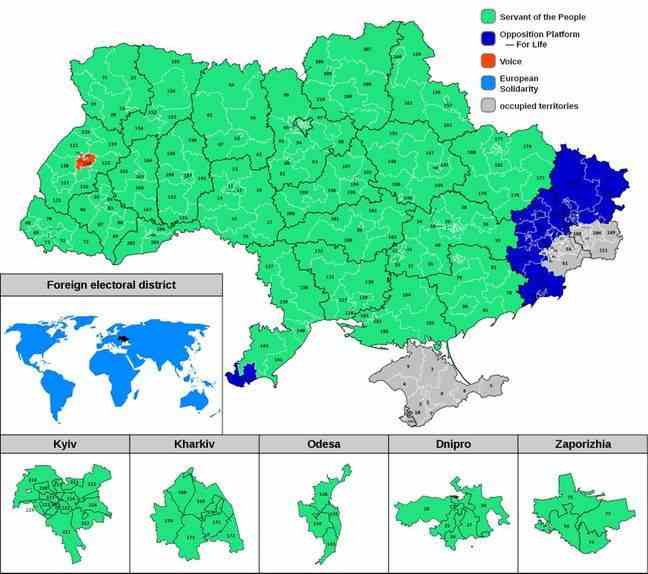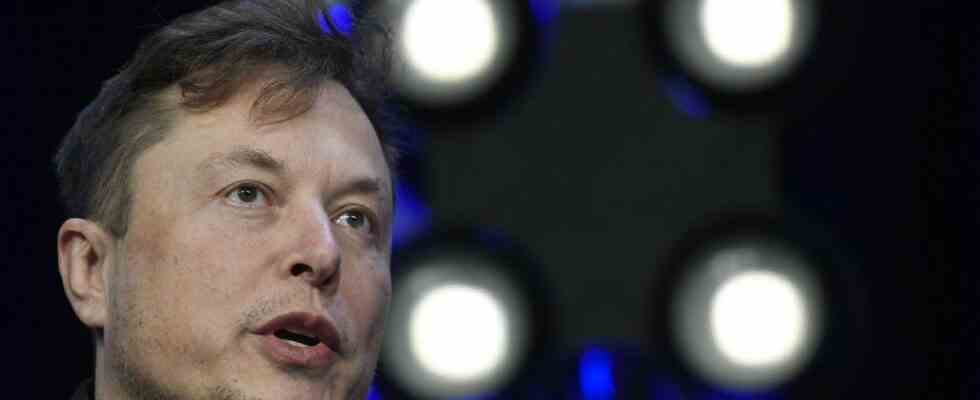What else did Elon Musk do? A recurring question on social networks where the boss of Tesla does not fail to get noticed. It all starts on Tuesdayduring a tweet where Elon Musk alienated Ukraine by proposing a poll to know: Would you be in favor of peace between Russia and Ukraine?
According to him, a peace agreement would be possible and would be partly based on compromises by Ukraine, in particular the reorganization of elections in the annexed regions and the adoption of Crimea by Russia. All this without Russian counterpart.
A vote that did not go unnoticed by politicians, from kyiv to Washington. “With all due respect to Elon Musk – and I respect him – I would say that he needs to understand the facts of the Russian invasion of Ukraine,” pointed out Senator Lindsay Graham, before adding: “ To suggest that we end the Russian invasion by simply giving Russia parts of Ukraine – after all the suffering – is foolish. It is also an affront to the bravery of Ukrainians who are fighting to defend their homeland. »
And inevitably, Elon Musk reacted a few hours later: “Assuming that you believe that the will of the people matters, we should, in any given conflict region, support the will of those who live there. Most of Ukraine unequivocally wants to be part of Ukraine, but some eastern parts have Russian majorities and prefer Russia”. To justify himself, the latter uses a map of the 2012 legislative elections in Ukraine, where the pro-Russian party represented in blue would be in the majority. But is this illustration still legitimate today? 20 minutes make the point.
FAKE OFF
In Ukraine, legislative elections did indeed take place in 2012. On this occasion, voters went to the polls to elect the 450 deputies of the Rada, the Ukrainian Parliament. The Party of Regions came out on top with 185 seats, followed by the All-Ukrainian Union “Fatherland” which then won 101 seats. The results divide the country, as shown in the map produced by Vasyl Babycha Ukrainian political analyst and fired a few years later by Elon Musk.
As the billionaire indicates, the Party of Regions is indeed the one visible in blue on the map. In Ukraine, the party is considered regionalist – as its name suggests – and above all pro-Russian. However, Elon Musk’s claim is a bit wrong. “Voting for a pro-Russian party does not mean wanting to join Russia. The Ukrainians wanted the country’s independence,” summarizes Tatiana Jean, director of the Russia-NIS center at Ifri (French Institute for International Relations). The latter cites in particular the result of the referendum in Ukraine in 1991, which after the fall of the USSR, voted 92% yes to the question: “Are you in favor of the declaration of independence of Ukraine?” “.
A card too dated
What’s more, this card is ten years old now. Between the war in Donbass, the annexation of Crimea and the current conflict, it is difficult to analyze the current situation according to such a dated image. “Even the Ukrainians who were against Maidan, did not want to be under Russian occupation or to be part of Russia. This has greatly blurred the division between East and West in Ukraine. A fortiori today”, explains Tatiana Jean.
It is true that in 2019, new elections changed the situation. Ukraine sees that year the coming to power of Volodymyr Zelensky. In the legislative elections, his “Servant of the People” party won with 43% of the vote, or 254 seats. The country’s second party, still pro-Russian now known as the “Opposition Platform” is largely weakened with 11.4%, or 43 seats. It is therefore difficult to compare the political weight of the Russophile parties in 2012 and today, as evidenced by the map below which is much more current.


